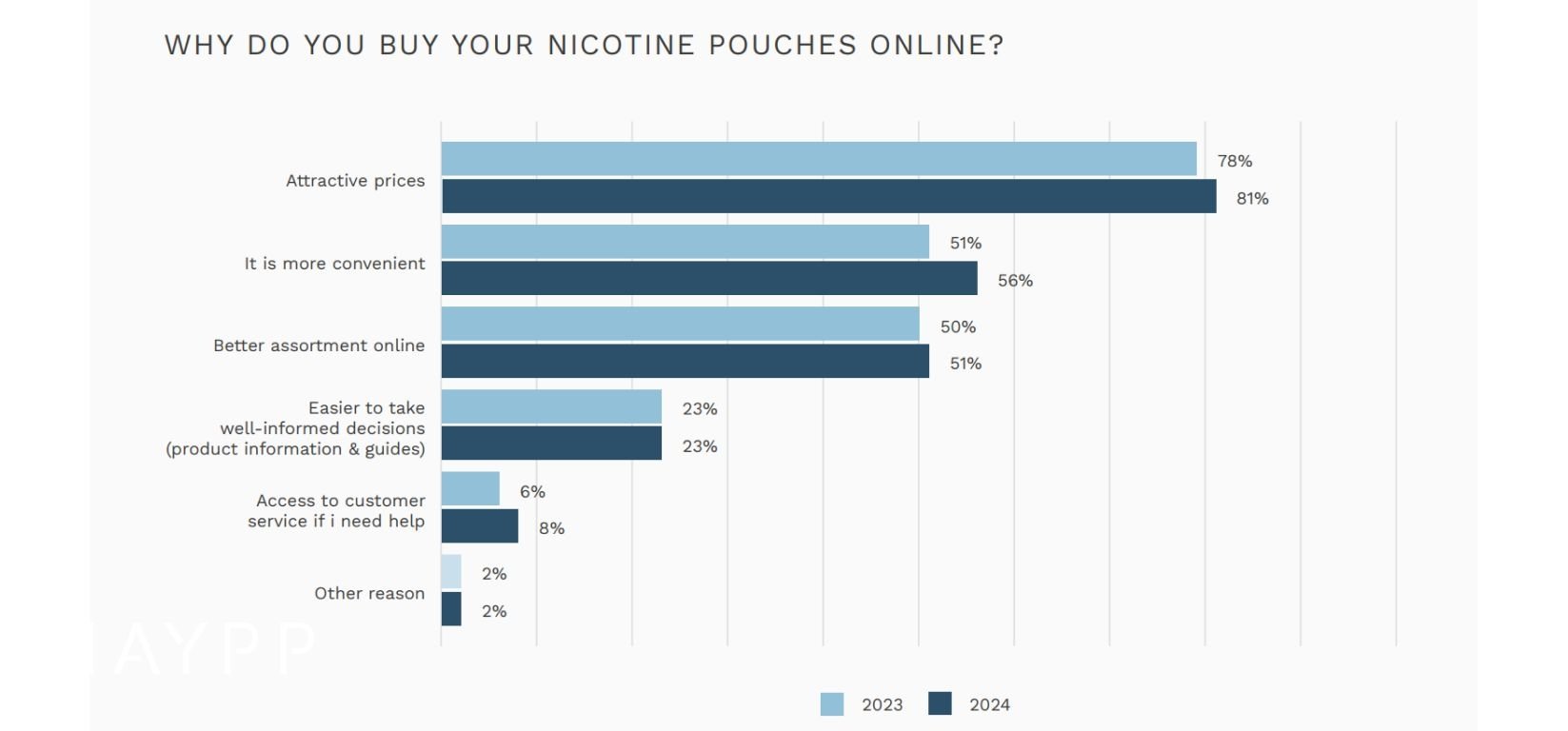What Are The Benefits Of Snus?

Key Takeaways
- Benefits of snus include being discreet, odour-free, and smoke-free
- Nicotine acts as a stimulant, which may enhance focus and concentration
- Snus can be more cost effective than other nicotine products
- Snus does not involve combustion, unlike smoking
- There is a wide range of snus flavours and strengths
The Benefits of Snus
From its humble Scandinavian origins, snus has become increasingly widespread across the globe.
For example, the British nicotine pouch market doubled in 2024, according to Haypp Group’s 2025 Nicotine Pouch Report.
Given this rise in popularity, many users are wondering: what are the snus benefits? And are there any health benefits to snus?
Focus and Concentration
Some users say they choose snus because they feel it helps them stay more focused or alert. This is based on individual experiences, as nicotine is known to have stimulating properties.1
Read more about snus side effects for a full overview of what to expect when using snus.
Discretion
Snus is portable, odour-free, smoke-free, and doesn't require any extra equipment.
Plus, it’s discreet to use, as you simply place the pouch between your gum and upper lip. It is this discretion that is cited as the top benefit among pouch users (68%) in the Haypp report.
In a similar vein, 54% of users valued the fact that people around them were not affected by their nicotine consumption.

Affordability
Snus is one of the most affordable nicotine alternatives on the market, costing the average UK consumer between £1,200–£1,500 per year. This is according to Haypp’s own calculations.
It can also be more cost-effective to shop online, with retailers like Haypp UK offering competitive pricing. 81% of users highlighted their preference to purchase pouches on the internet rather than in-store because of this.
Use our nicotine cost calculator to track your personal spending on nicotine products.
Nicotine Release
Snus is designed to release nicotine gradually, with a typical duration of 20-60 minutes per pouch.
This contrasts with cigarette smoking, where nicotine is delivered within seconds and is followed by a sharp decline.2 Some users prefer this longer-lasting release.
Teeth Staining
Smoking is strongly linked with tooth staining because of tar and other by-products of combustion.
Nicotine pouches, sometimes called ‘white snus,’ are smokeless and do not contain tobacco. Because they are not burned, they do not expose users to tar, which is one of the main causes of teeth discoloration in smokers.
With that said, results can differ from person to person and maintaining good oral hygiene is still important.

Flavour and Strength Variety
One of the advantages of buying snus online is the wide variety of strengths and flavours available.
Mint is the most popular flavour among our customers (59% of all cans sold on Haypp), but there are plenty of other flavours, such as berry, citrus, chili, and floral options.
Looking at snus strengths, Extra Strong was the top choice among our customers with 48% of orders, while Normal made up 29% and Strong 16%.
Social Acceptability
According to the Haypp Report, nicotine-free pouches (closely followed by nicotine pouches) are viewed as the most socially acceptable among nicotine products, compared to other options like Swedish snus, chewing tobacco, and cigarettes.
The report speculates that this could be due to the fact that snus does not expose people in your surroundings to second-hand smoke or unpleasant smells.
Are There Snus Health Benefits?
Some users wonder about the health benefits of snus to understand how it compares to other nicotine products.
Snus is a smokeless product that does not involve combustion and does not require burning. Because of this, users are not exposed to the harmful chemicals associated with cigarettes.
According to the NHS, it is these substances in cigarette smoke that are associated with cancer, heart disease, and respiratory problems.3
However, snus is not completely risk-free and still contains nicotine, which is an addictive substance.
Discover the Benefits of Snus With Haypp
With snus benefits including discretion, affordability, and a wide variety of strengths and flavours, snus offers a convenient alternative to traditional tobacco products.
For the best value, fast shipping, secure payments, and competitive bulk-buy pricing, explore and order snus and nicotine pouches online at Haypp.
FAQ Snus Benefits
What are the benefits of snus?
For some users, the perceived benefits of snus include:
- Smoke-free
- Discreet to use
- Available in many strengths and flavours
What are the health benefits of snus?
Tobacco-free snus does not involve combustion and therefore does not produce tar or smoke. However, snus is not risk-free and does contain nicotine, an addictive substance.
What flavours and strengths of snus are available?
Snus comes in a wide variety of flavours, such as mint, berry, citrus, and more.
Haypp stocks snus in a range of strengths, from 1.5 mg to 20 mg per pouch. We cap nicotine strength at 20 mg per pouch, in accordance with recommendations by the Swedish Institute for Standards (SIS/TS 72:2024)
Resources
- Effects of Nicotine on the Central Nervous System and Sleep Quality in Relation to Other Stimulants: A Narrative Review. Nihaal Singh, Anil Wanjari, and Arya Harshyt Sinha.
- Determination of Nicotine Absorption from Multiple Tobacco Products and Nicotine Gum. Helena Digard, Christopher Proctor, Anuradha Kulasekaran, Ulf Malmqvist, and Audrey Richter.
- Vaping to quit smoking. NHS.
